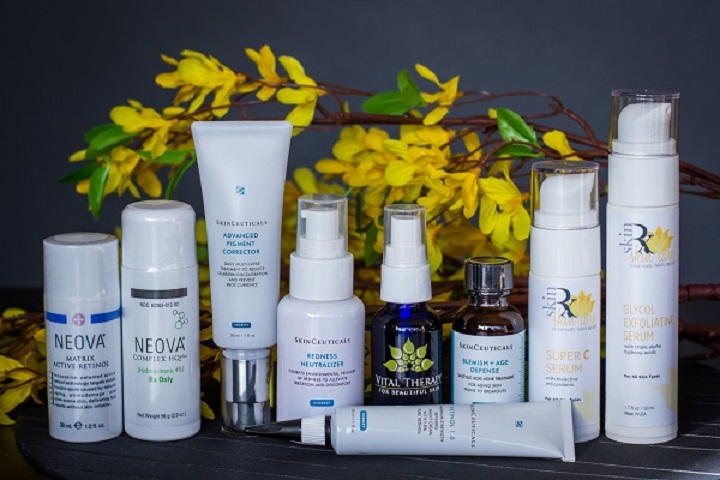In the pursuit of healthy, glowing skin, finding the right skincare products is crucial. Medical grade skincare offers a potent solution, formulated with high-quality ingredients backed by scientific research. However, navigating the sea of options can be daunting. This comprehensive guide will delve into the world of medical grade skincare, equipping you with the knowledge to make informed choices for your skin.
Understanding Medical Grade Skincare

- What sets medical grade skincare apart from over-the-counter products?
- The role of dermatologists and skincare professionals in formulating medical grade products.
- Why medical grade skincare is recommended for addressing various skin concerns.
Key Ingredients in Medical Grade Skincare
- Retinoids: The gold standard for anti-aging and acne treatment.
- Vitamin C: A powerful antioxidant that brightens skin and protects against environmental damage.
- Hyaluronic Acid: Hydrates and plumps the skin, reducing the appearance of fine lines.
- Alpha Hydroxy Acids (AHAs) and Beta Hydroxy Acids (BHAs): Exfoliate dead skin cells for smoother, more radiant skin.
- Peptides: Stimulate collagen production for firmer, younger-looking skin.
- Growth Factors: Support skin repair and regeneration.
- Antioxidants: Protect against free radicals and environmental stressors.
- Ceramides: Restore the skin’s natural barrier function, preventing moisture loss.
Choosing the Right Products for Your Skin Type
- Oily Skin: Look for oil-free, non-comedogenic formulas that control sebum production.
- Dry Skin: Opt for hydrating ingredients like hyaluronic acid and ceramides to replenish moisture.
- Combination Skin: Balance oil production while maintaining hydration with lightweight, multitasking products.
- Sensitive Skin: Seek gentle, fragrance-free formulations with soothing ingredients like chamomile and aloe vera.
- Why sunscreen is a non-negotiable step in any skincare routine.
- Understanding SPF and PA ratings.
- Incorporating sunscreen into your daily regimen, rain or shine.
- Tips for choosing a medical grade sunscreen that suits your skin type.
Creating a Skincare Routine

- Cleansing: The foundation of any skincare routine.
- Treatment: Target specific concerns with serums, creams, and spot treatments.
- Moisturizing: Hydrate and seal in moisture for supple, healthy skin.
- Sun Protection: Shield your skin from UV damage with a broad-spectrum sunscreen.
- Additional Steps: Exfoliation, masks, and eye creams to address specific needs.
Understanding Skincare Myths and Misconceptions
- Debunking common myths about skincare ingredients and practices.
- The truth about natural versus synthetic skincare.
- Understanding the science behind skincare claims.
- Why consistency is key to seeing results with medical grade skincare.
Incorporating Professional Treatments
- The benefits of combining at-home skincare with professional treatments.
- Popular in-office procedures like chemical peels, microdermabrasion, and laser therapy.
- Consultation with a dermatologist or skincare professional for personalized recommendations.
Maintaining Healthy Skin Habits
- The importance of a balanced diet, hydration, and adequate sleep for skin health.
- Stress management techniques to minimize the impact of cortisol on the skin.
- Avoiding common skincare mistakes that can exacerbate issues.
Investing in medical grade skincare is an investment in the long-term health and appearance of your skin. By understanding your skin’s needs, choosing the right products, and maintaining healthy habits, you can achieve the radiant complexion you desire. Remember, consistency and patience are key on the journey to beautiful skin.


